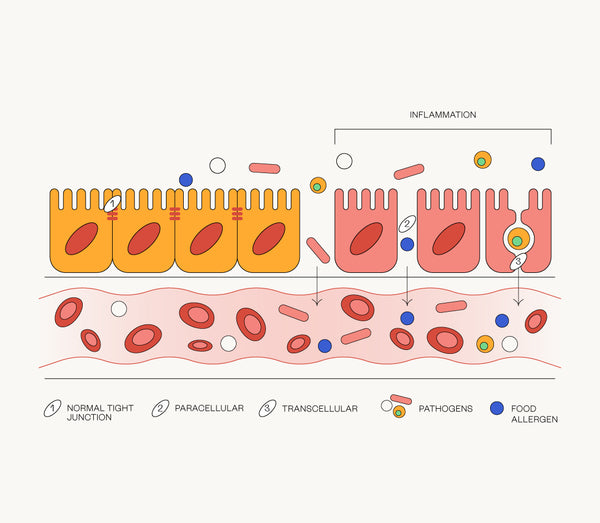Self care is a key element for a balanced, fulfilling, and healthy lifestyle. We practice self care to regenerate, reset, and recharge. You may have also noticed that you can reap the benefits of your self care on multiple levels: on a bad day a walk can infuse your muscles with newly found vigour, and your mind with fresh new zest! That’s because everything in our body is deeply interconnected.
Your gut, in particular, regulates many important body functions. A sense of fatigue, poor sleep, and a temperamental skin are only some of the signals your gut sends to tell you it needs some TLC.
Taking good care of your digestive system can positively affect the rest of your body. The most surprising link may be the one between the gut and the brain. Emotions create physiological changes in your body, and stress is no exception. Gut health is closely dependent on your mental health and the other way round! And that’s why gut care should be part of your self care practice.
However, looking after your gut does not have to be one more thing for you to worry about! In fact, many of the activities that might already be included in your practice have some positive effects on your digestive system!
These are some self care ideas that are good for both your mind and your gut.
Mindfulness
Being present in the moment is a powerful way to help you lower your stress levels. Mindful eating, in particular, enables you to savour the moment as well as your food, and aid your digestion at the same time. Eating slowly, focusing on the tastes and textures as you carefully chew a nutritious meal helps your system to better absorb all those precious nutrients.
Keep hydrated
Sipping on fragrant herbal teas and infusions can be a delightful way to relax and unwind, and their plant extracts are key to optimal gut health too: many herbal blends are rich in ingredients that help support your digestive system while you enjoy a regenerative break.
Yoga
Regular, moderate exercise is an effective way to manage stress, lift your mood (hello, endorphins!), and, you guessed it, maintain your gut healthy. A short yoga session, where movement is coordinated to your breath, effectively relieves the effects of constant hyperarousal, which is detrimental to digestion.
Journaling
This may surprise you but keeping a journal is a powerful exercise for stress reduction and a great ally for your digestion. Whether you need a judgement-free space to spill your feelings or an opportunity to note down all that you’re grateful for, a blank page is a friend to your mind and your gut too.
Meditation
Besides helping you feel more centred and calm, deep breathing activates the parasympathetic nervous system, which is responsible for many processes, including digestion. Deep, conscious breaths increase blood flow and oxygenation to the digestive tract, making your gut more efficient.

Disclaimer: The information in this article is intended for your educational use only, and is not a substitute for professional medical advice, diagnosis, or treatment. Always seek the advice of your physician or other qualified health providers with any questions you may have regarding a medical condition and before undertaking any diet, fitness, or other health programmes.


